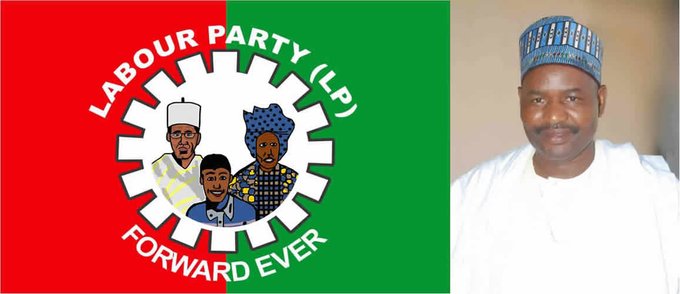The Labour Party (LP) leadership has condemned a meeting convened by former presidential candidate Peter Obi and Abia State Governor Alex Otti.
The party, in a statement by its National Secretary, Farouk Ibrahim, described the meeting as an ‘illegal’ National Executive Council (NEC) gathering aimed at hijacking the party’s structure.
LP alleged that Obi and Otti led a group of ‘party outlaws’ to the Independent National Electoral Commission (INEC) headquarters in Abuja, in a bid to pressure the electoral body into taking unconstitutional actions against the current LP leadership.
“Their actions today reveal a desperate attempt to hijack the party’s structure,” said the party.
“If the Supreme Court judgement is truly in their favour, why are they rushing to INEC and trying to exert undue influence on the Commission?”
The party also dismissed reported claims by Obi and Otti that they were offering a ‘soft landing’ to the current National Chairman, Barrister Julius Abure, by proposing to appoint him Chairman of the party’s Board of Trustees (BoT).
The LP insisted that such a move is neither constitutional nor within their powers.
“Abure did not appoint himself National Chairman; his position reflects the will of the party’s organs. The constitution of the Labour Party does not grant anyone the prerogative to allocate positions arbitrarily,” the statement said.
The LP further accused those at the meeting of issuing threats and vowing to use “all means, including brute force,” to reclaim control of the party.
It also drew attention to similar comments allegedly made by a political union leader, Comrade Joe Ajaero, threatening to picket LP offices nationwide.
“Our immediate response to these threats is that such plans amount to self-help. There are legal and peaceful means to enforce a judgment if it truly favours them,” said LP.
The party reiterated that the NEC meeting convened by Obi and Otti violates both the Supreme Court’s ruling and the party’s constitution.
It stressed that only the National Secretary, with the consultation and approval of the National Chairman, is authorised to convene such a meeting.
Quoting Article 14 of the party’s constitution, the LP outlined the official composition of its NEC, stating that neither state governors nor former presidential candidates are empowered to summon NEC meetings.
“For the avoidance of doubt, the article is here reproduced as follows: National Chairman, Five (5) Deputy National Chairmen, at least one female, One each from NLC and TUC. One representing the North and one South, The President and Vice President. The President of the Senate and the Deputy, the Speaker and the Deputy Speaker of the House of Representatives; if produced by the Party and all the Governors and Deputy Governors produced by the Party.
“Chairmen and Secretaries of State Executive Councils of the Party.
v. Six (6) National Vice Chairman each representing the six geopolitical zones of the country, National Secretary; Three(3) Deputy National Secretaries viii. National Treasurer, Financial Secretary, National Publicity Secretary, (a) Deputy National Publicity Secretary, National Organizing Secretary, Deputy National Organizing Secretary, National Legal Adviser.
“Deputy National Legal Adviser, National Auditor, Deputy National Auditor, National Women Leader, six (6) Deputy National Women Leaders cach representing each of the six geo-political zones of the country, National Youth Leader and six(6) Assistant National, Youth Leaders. Each represents each of the six geo-political zones of the country.
“Presidents and General Secretaries of Labour centres if they are, financial members of the party representing the platforms, Ex-officio members to be appointed by the National Executive Council, Chairpersons of Women Commissions of labour centres if they are members of the Party.”
It also declared the existence of a so-called ‘National Caretaker Committee’ as unconstitutional and without basis in the party’s legal framework.
The list of attendees at the disputed meeting, which included former candidates, members of the National Assembly, and representatives of labour unions, was also dismissed by the LP leadership as a further example of constitutional violations.
“If our leaders cannot obey the constitution of the party when they are not in power, what assurances do we have that they would respect the Nigerian Constitution or Electoral Act when in power?” the statement questioned.
The LP urged its members and the general public to disregard the Abuja meeting and its resolutions, labelling the entire process “illegal, null and void.”

